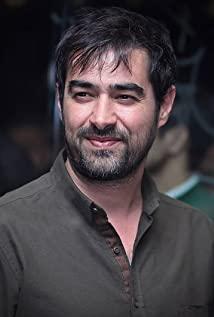Iranian director Asghar Farhadi filmed "A Farewell" in 2011. After the film was released, the box office and word of mouth were excellent. He has won numerous awards, and the awards basically include all kinds of large-scale film festival awards in Europe, especially the Golden Globe Award with the most gold content in the world, the Golden Bear Award in Berlin, and the Oscar for Best Foreign Language Film. That year, it kicked away mainland China's "The Thirteen Hairpins of Jinling", leaving Zhang Yimou with the best foreign language nomination again. This film carries the state of social life in Iran, and the social problems it reflects made me think for a long time after watching it.
Award record
The film tells the story of two couples about moral and legal disputes. Nader and Westminster are preparing to divorce and immigrate abroad. Her husband Nader chooses not to immigrate in the face of his paralyzed old father, but the immigrant fails, and his wife chooses to go back to her parents' home. Nader hired a pregnant female housekeeper to work part-time to take care of her daughter and her father, who has Alzheimer's. During the process, due to various reasons, the female housekeeper aborted, and the two families went to court to fight a lawsuit. The two families struggled in the entanglement of morality and law, which reflected various problems in Iranian society.
The English name of the movie is "A Seperation", and the Chinese translation is "A Separation". At first, I thought it was not good, inappropriate, and too light. People feel frivolous. Later, after thinking about it, I still feel that "A Parting" is very good, and the translation method of "seeing the big from the small" can highlight the heavy feeling in it.
One: Once you leave, what are you leaving? After watching the film, I had an epiphany. This separation has multiple meanings of separation between father and mother, truth and lies, religious belief and modern civilization, the upper class and ordinary people, adults and children.
01. The separation of father's love and mother's love
The unhappiness and dissatisfaction of modern marriages have become a social phenomenon, and children have become victims of adults' divorce. In the process of growing up, children most need the company and care of their parents to accompany them to grow up. Parents are the greatest sense of security for children.
Nader and Westminster's daughter Temei has always been in the relationship between her parents and has been working hard to reunite her parents and build a complete family. When her father was detained for the female worker incident, she called her mother to go home and deal with it. Mother thought of using money to deal with the matter privately, so she decided to go home. The father was unwilling to use the money for private purposes, and the daughter scolded him. If the money was used to deal with it privately, the mother would be willing to go home and put her luggage in the carriage, but the father broke this satisfactory way of handling it.
Temei has always hoped for family reunion, but her parents have shattered her ideals because of the difference in concept.
02. The separation of truth and lies
In order to go to the hospital to check the condition of her fetus, the female worker tied Nader's father to the bed to ensure that Nader's father would not run around. Nader came home to find his father lying under the bed with one hand tied to the bed, nearly dying. Nader decided to fire her. When the female worker came to check out, Nader framed her for stealing money and pushed her down the stairs by mistake.
The female worker went to the hospital with an abortion. The female worker's husband knew that it was because Nader was pushed to the ground and decided to sue Nader. Nader lied that he didn't even know she was pregnant. In fact, Nader had overheard the female worker and the tutor saying that she was pregnant.
In private, together with her daughter, she deduced how the female worker fell in that position to justify herself.
The female worker also insisted that the miscarriage was caused by Nader's overthrow of the fetus in her womb, and the two sides persuaded the judge according to their own logic in anxiety.
In the end, as things get worse, both parties may have to bear the sanction of law and faith before they tell each other the truth. The female worker died in the fetus because Nader's father went out to buy newspapers and went to find his father and was hit by a car. Nader framed the female worker for taking the money and pushed the female worker on the stairs by mistake, but he knew that his father took the money himself.
The reversal of truth and lies makes the film full of suspense, and I don't know if it's true or not. In order to cover up their crimes, they all choose to deceive, and they tell the truth because they are afraid of being punished because of their beliefs.
03. The separation of religious belief and modern civilization
The book of faith that runs through the entire film is a "Koran". Iran is a country where the state and religion are integrated, and they regard religion as a yardstick to measure their character.
When Nader’s father wetted his pants, the female worker called to ask if he would be punished if he changed his father’s pants, and her youngest daughter frankly would not tell her father about it.
Female workers have always used their religious beliefs to act and do things, and she is a symbol of Iran's religious civilization. He framed Nader by himself, and was afraid of retribution, so he was very entangled in the process of the lawsuit.
Nader received a modern cultural education, was open-minded, and was a representative of the modern upper class. He is eloquent, uses superhuman wisdom to justify himself, and does not believe in any beliefs.
The contradiction between the two reflects the conflict between belief and civilization. Religion is one of the origins of civilization. Religious belief has always supported people's thoughts, and people restrict their behavior through religious belief. In modern civilization, everyone has left religion behind, believing that it is a product of idealism.
04. The separation of the upper class and ordinary people
The deepest impression in the film is that Temei and her grandmother are sitting on chairs in the corridor, Temei is reciting the knowledge of historical subjects, and Temei's grandmother is still emphasizing "poor people".
Teme: In the Sassanid dynasty, people were divided into two classes, the upper privileged and the poor grandmother: the poor
The Nader family is the representative of the upper class of Iranian society. They are highly educated and have the best social resources, so that their children can enjoy the best social education, and they hire tutors for their children.
The female workers' family is the representative of the poor people. They are hard-working but have a hard life. They have to go out to do housekeeping when they are pregnant.
The concept of social class has always existed since ancient times. Urban people despise country people, government officials despise common people, and rich people despise poor people... This kind of social concept will not die out due to the development of society.
05. The separation of adults and children
There is a saying called Tong Yan Wuji, which means that the truth of what children say is higher than that of adults. When a person is born with kindness, he grows bigger and bigger, is polluted by this society, and becomes more and more liar.
Everything the worker's daughter says in the feature film is true, and Nader's daughter, Teme, begins to learn to lie to cover up reality. For the sake of her father, she chose to hide the truth to help them get through this difficult time. He said he did not see the father push the female worker over, nor did he notice that the female worker was pregnant.
The attitudes of the two children in front of the facts are indeed so different. Is it true that the more they grow up, the more they will lie, and learn to use lying as a shield to protect themselves while ignoring the truth of things.
At the beginning of human beings, nature is inherently good, and the distinction between good and evil is so obvious, vivid and naked between children and adults.
Two: How to find a balance between civilization construction and religious belief is Iran's biggest dilemma.
The conflict between civilization construction and religious belief is a difficulty in the modernization of modern civilization. Religion itself is civilization, but it has a lot of confusion and uncertainty. The biggest problem in Iran is the issue of politics and religion. Religious beliefs often interfere with political decision-making. It is difficult to have both.
The court needed evidence to prove that the death of the female worker's pregnancy was caused by Nader, who also argued for his innocence. The higher the education level, the less they believe in religious beliefs. What they believe in is facts and money, and they try to use money and fabricate facts to get away with it.
A female worker whose religious beliefs have been restricting her behavior has to call or ask others whether she has done it or not every time she wants to do something. She changed Nader's father's pants, and whether her fetus died in the womb and lying in the womb would be punished again. She used her religious beliefs as a test and a yardstick to measure her own morality.
In-depth discussion of going abroad and domestic life, there is a discussion about immigration at the beginning of the film. Both parents are arguing about the reasons for divorce, and the problem of children is mentioned:
Judge: Does the child have no chance in this country? Westminster: As a mother, I'd rather she not grow up in this environment Judge: What environment? Westminster: ... Judge: Isn't it better to have parents here than to have no father after going abroad?
When the judge asked Westminster what the circumstances were, Westminster answered silently, because this is a social issue in Iran. In modern society, Iranians are conservative in their thinking and act and do things with distorted beliefs. Women have to wear a veil and wrap them tightly. Growing up in such an environment does not benefit the growth of children at all.
Westminster has always hoped to go abroad to give her daughter a better living and learning environment. She represents advanced civilization and carries Iran's pursuit of a better life. Nader has been staying in the country, taking care of his father with Alzheimer's disease, and firmly believes that he must give his daughter a good education. This kind of thinking of his represents the residual image of Iran's past society, leaving it as a responsibility and accepting the reality.
At the end of the movie, about the issue of raising the daughter, no one should give it an explanation. It uses an open ending to let people imagine, just like the construction of civilization and social beliefs in Iran, how to find a balance point, still not given. The answer still depends on Iran's own exploration.
Three: Thoughts on Film
In 2011, Zhang Yimou's "The Thirteen Hairpins of Jinling" represented the mainland's bid for the Olympics, but did not even enter the nomination award. A "Parting", which cost dozens of dollars, broke through and won the final award.
At that time, I saw someone comment on Weibo: Oscar knocked out "The Thirteen Hairpins of Jinling", which is right. After watching "A Farewell", I still believe in Oscar. If "The Thirteen Shorts of Jinling" won the best Foreign language films, I really don't believe in Oscar.
After watching the movie, I believed this review. "The Thirteen Hairpins of Jinling" is really good, but there are too many loopholes, and the sex scenes imposed for no reason are embarrassing. In Chinese film culture, sex scenes are not our unique cultural flavor, but are unique to European and American films. We have to learn everything, and using doctrines makes us nondescript.
Is Zhang Yimou not talented? Can't make a good and meaningful movie? Who made such excellent films as "Alive" and "Not One Less", and who made the opening ceremony of the Olympic Games?
Zhang Yimou has the ability and talent to make excellent films, but why can't he make them now?
Many people attribute the reason to the strict censorship system, which is caused by abnormal radio and television. Iran also has a strict censorship system. They censor pervertedness as much as us, so why can't we make it, and others have made it.
Zhao Wei's "Dear" and Fan Bingbing's "I Am Not Pan Jinlian" were also reviewed, so why are the box office and word of mouth so good. The reason is ourselves. We are eager for quick success, we want to make money, we want the box office, whoever is popular, doesn’t care whether his acting is good or not, as long as he has fans, he can make blockbusters, and the director who makes billions of box office is awesome.
Every day we are scolding why China can't make a decent movie, but every day we buy a movie for a decent movie and send it to the box office.
No one watches literary and artistic films, and big directors have to make commercial films in order to defend their status with the box office. Blindly investing, throwing money, and using big scenes to set off the grandeur of their movies.
Film is an art, it is used as a medium to convey humanistic care, but we use it as a tool to make money, sad!
(Old article written before)
View more about A Separation reviews











